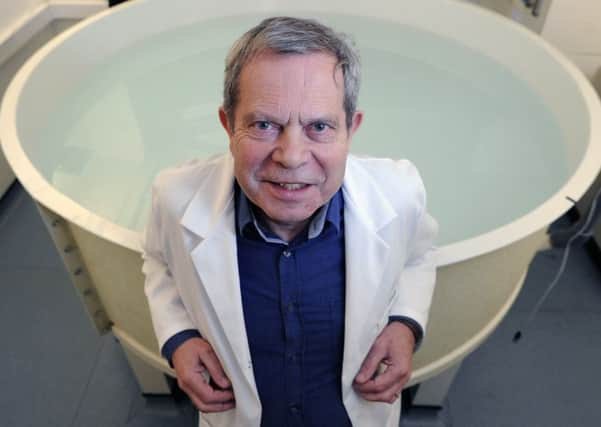Brain Prize goes to Richard Morris for memory research


The £1 million Brain Prize has been awarded to a trio of UK scientists, including Edinburgh University expert Richard Morris and English colleagues Tim Bliss and Graham Collingridge, for their work on a brain mechanism called Long-Term Potentiation (LTP), which has shaped understanding of how memories are formed, retained and lost.
The trio demonstrated how connections between brain cells in the hippocampus, which formulates new memories, can be strengthened through repeated stimulation.
Advertisement
Hide AdAdvertisement
Hide AdLTP underpins the plasticity of the brain, so it can reorganise and rebuild itself after damage such as a stroke.
However, damage to these nerve connections, known as synapses, is thought to play a role in brain-related conditions such as autism, depression and epilepsy.
It is hoped the work could lead to better treatments for conditions such as dementia.
Professor Morris devised a laboratory test for spatial memory in 1986 by creating a water maze where rats and mice could swim around to find a platform hidden under the water.
Advertisement
Hide AdAdvertisement
Hide AdHe discovered that damage to the hippocampus would severely hinder the rodent’s ability to find its way.
Using specific drugs acting at the NMDA receptor, he began a long programme of research to establish the role of LTP in memory.
Prof Morris said: “I am naturally honoured to receive a share of this prize.
“All of us have had the good fortune to run laboratory teams, including graduate students and postdoctoral researchers. We acknowledge our debt to them and hope that the award of this prize recognises the fundamental importance of their contributions.
Advertisement
Hide AdAdvertisement
Hide Ad“While much of the work we have done on LTP has been driven by our curiosity about how the brain stores memories, it is inevitable that knowledge of basic mechanisms will lead to approaches for alleviating the pathologies of memory that are becoming increasingly prominent in our ageing society.”
Prof Bliss, from the Francis Crick Institute in London, has been a driving force in exploring LTP since his team came up with the first detailed description of the process in 1973.
Techniques to identify key molecules that are responsible for LTP were developed by Professor Graham Collingridge, from Bristol University, who discovered a protein in the brain known as an NMDA receptor that is important for communication amongst nerve cells.
Professor Sir Timothy O’Shea, pricipal of Edinburgh University, said: “This is a very worthy recognition of Professor Morris’ pioneering research into the mechanisms of learning and memory in the brain. I am sure that the award of this prize will act as an inspiration to scientists at Edinburgh and beyond.”